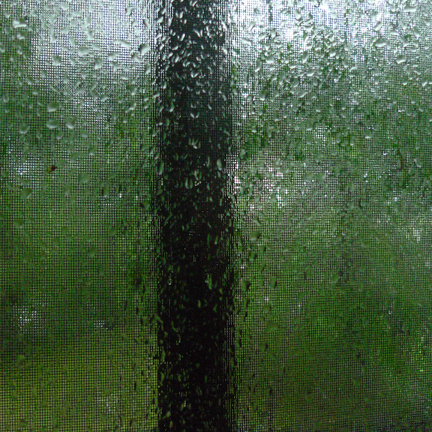
Saturday, September 3, 2011: The air is filled with anticipation. Irene is on her way. A friend who lives in lower Manhattan takes heed: an 8:48 a.m. train will deliver him, with his son, to the exurban community I live in, about an hour north of the city. If Irene is as fierce as predicted, he doesn’t want to be in her path. Little does he know that leaving the threatened eye of the storm will take him right into it.
Irony. It adds zest to literature. Makes a mockery of all those woulda/coulda/shoulda moments placed in our laps daily/weekly/monthly. Once in a lifetime. The predictive tools we have at our disposal are no measure against our individually peculiar ways of dealing with all things unknown and out of our control. Yes, knowing a hurricane of such (potential) magnitude is coming allows me some time to prepare, stock up on (at least) water. I’ve lived in an area of overhead powerhead lines long enough to know that all it takes is one heavy branch or one squirrel looking for warmth in all the wrong for places to leave me in the dark. Prepared? Sometimes I’m not even sure what that means.
Sunday, September 4, 2011: The sky is thick with rain and wind, no letup in sight, the power already knocked out by Irene in the wee hours of the morning. Not to worry, I tell my friend over an early cup of coffee. I have a rule of thumb: if the power isn’t on within two-three hours, we’re in for the long haul. No point in (yet) waking his son, the college kid. Without Internet access, what’s a boy to do? We wait it out, keep ourselves entertained with conversation, eating, reading by daylight. How lucky am I to have an iPad, backlit and fully charged. My friend, a very gifted photographer, points his camera to the world outside, from the world inside. We have buckets positioned beneath scuppers, collecting rain for the necessary flushes. Showers? Nobody cares right now. We’re in the thrall of Irene, captive, maybe even a little captivated. We talk about alternative plans — what if the power isn’t on by nighttime?
The day passes, and, like a miracle, the sun comes out. The college kid has a craving for grilled chicken, and it’s a craving we can easily accommodate. We have friends, too, who by luck of being on a different part of the electrical grid, have power but no cable. Wouldn’t they like some company, a DVD at the ready?
Anticipation. At its worst, it skips like a broken record scratched with anxiety. At its best, it suggests hope. We leave our friends, go home, make our way through the dark house. Collecting candles, lighting them, settling down in the living room. Talking. Laughing. Two men, a college boy, and me. It feels a little like camping out, albeit with (almost) all the comforts of home. Life could be worse, my husband says. It could be the dead of winter, not a beautiful summer night.
Monday, September 5, 2011. We wake up, still no power, my friend and his son ready to head back to a city hardly grazed by the storm. I could have said what I was thinking before they came up — namely, that if Irene is as bad as projected, they might not be able to go back Monday a.m. Mother (often) knows best, even if she doesn’t say it. Fortunately, by afternoon, there are trains from a larger hub (White Plains). Even if all’s not really well, there’s something to be said for a little relief.
Hurricanes. They used to have only female names, and no one could really say why, except to assume it had something to do with a volatile, fickle nature. The joke: whoever heard of a himicane? Now there’s no gender bias, and we’ve had our share of male names (Floyd one of the worst in recent memory). And yet I can’t help thinking about all those women with the name Irene and the power it held, almost mythical, for at least a few days. I’m thinking, too, how many times, in the course of the three days I would be without power, I turned on the light switch in the bathroom, surprised more at the reflexive action than the result it did not bring.
Photo ©Abe Frajndlich. Reprinted with permission

